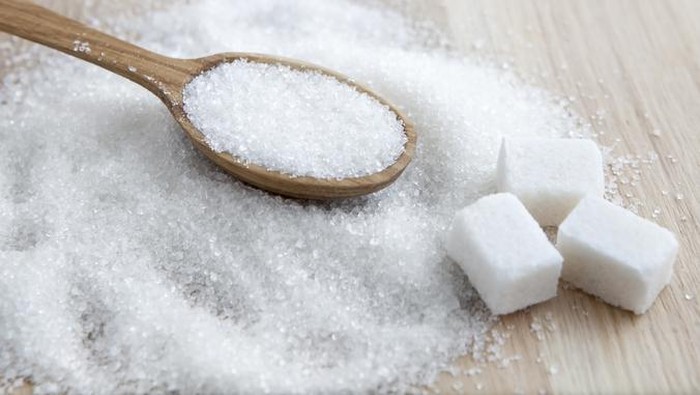

hoshitanji.com, Jakarta – Have you noticed the sudden spike in sugar prices lately? Brace yourselves, folks – the sweet deal we’ve been enjoying is now a bit harder to swallow. Let’s delve into what’s causing this uproar in the sugar industry and how it might impact your pocket and pantry!
What Caused the Sugar Price Increase?
The sugar price surge has sent shockwaves through the market, leaving consumers and businesses scrambling for answers. Several factors have contributed to this sudden spike in prices. One significant reason is the weather conditions affecting sugar cane production. Unfavorable climate patterns have disrupted harvests, leading to a decrease in supply.
Additionally, global economic trends play a crucial role in determining commodity prices like sugar. Fluctuations in currency exchange rates and trade policies can impact import costs, influencing local retail prices. Political instability or conflicts in major sugar-producing regions can also disrupt supply chains, further exacerbating price hikes.
Furthermore, increased demand for alternative fuels like ethanol derived from sugarcane has diverted resources away from traditional sugar production, tightening supply and driving up prices. These complex interplays of environmental, economic, and geopolitical factors are shaping the current landscape of the sugar market.
Impact on Consumers and Businesses
The sudden jump in sugar prices to IDR 17,500/kg has a significant impact on both consumers and businesses across Indonesia. For consumers, this price hike means higher costs for everyday items like beverages, snacks, and baked goods. Families may need to adjust their budgets or cut back on sugary treats. On the business side, small mom-and-pop shops to large food manufacturers are feeling the pinch as well. Higher sugar prices lead to increased production costs which can ultimately be passed down to customers. Some businesses might have to rethink their pricing strategies or look for alternative sweeteners.
Restaurants and cafes that heavily rely on sugar in their recipes may also need to make adjustments or consider menu changes. It’s a challenging time for many businesses trying to balance quality with affordability amidst rising sugar prices. As consumers and businesses navigate these changes, it’s essential to stay informed about market trends and explore creative solutions to mitigate the impact of soaring sugar prices.
Government’s Response to the Sugar Price Hike
As the sugar price continues to surge, the Indonesian government has been closely monitoring the situation. In response to the hike, authorities have taken several measures to alleviate the impact on consumers and businesses alike. One of the key actions includes implementing price controls to prevent excessive inflation in essential goods. Additionally, efforts are being made to increase domestic sugar production to stabilize prices in the long run.
Moreover, subsidies for low-income households have been considered to ensure affordability for basic necessities like sugar. The government is also exploring partnerships with international suppliers to secure a stable source of sugar imports at reasonable prices. These strategic interventions aim to strike a balance between supporting consumers and safeguarding economic stability amidst fluctuating global market conditions.
Furthermore, regulatory bodies are working hand-in-hand with industry stakeholders to address challenges in supply chains and distribution networks that may contribute to price spikes. By fostering collaboration and transparency within the sector, policymakers seek sustainable solutions that benefit all parties involved in Indonesia’s sugar market landscape.
Alternative Sweeteners and Their Availability
Looking for alternatives to sugar amidst the price hike? You’re not alone. Fortunately, there are various alternative sweeteners available in the market that can help you satisfy your sweet tooth without breaking the bank. Stevia is a popular choice among health-conscious consumers due to its natural origins and zero-calorie content. It’s sweeter than sugar, so you only need a small amount to sweeten your beverages or desserts.
Another option is monk fruit extract, which is derived from a small green melon native to Southeast Asia. This sweetener contains antioxidants and has zero calories, making it an excellent substitute for sugar in recipes. Erythritol is a sugar alcohol that tastes similar to table sugar but with fewer calories. It doesn’t spike blood sugar levels like regular sugar does, making it suitable for diabetics or those watching their carb intake. With these alternative sweeteners readily available in stores or online, you can still enjoy your favorite treats while managing your expenses wisely.
Tips for Managing Expenses in Light of Rising Sugar Prices
As the sugar prices soar, it’s essential to find ways to manage your expenses effectively. One tip is to look out for sales and discounts on sugar at local supermarkets or wholesale stores. Buying in bulk when prices are lower can help you save money in the long run. Another strategy is to explore alternative sweeteners like honey, stevia, or maple syrup. While they may be slightly more expensive than sugar, using them sparingly can still provide sweetness without breaking the bank.
Meal planning can also help cut down on unnecessary expenses related to sugary treats and beverages. By preparing your meals at home and reducing processed foods that often contain added sugars, you not only save money but also promote healthier eating habits. Additionally, consider DIY options such as making your own desserts and drinks instead of buying pre-packaged items. This way, you have control over the ingredients used and can tailor recipes to suit your budget while avoiding excessive sugar consumption.
Conclusion
As consumers and businesses navigate through the challenges posed by the recent surge in sugar prices, it’s crucial to stay informed and proactive. Keeping an eye on market trends, exploring alternative sweeteners, and implementing cost-saving measures can help mitigate the impact of rising sugar prices on your budget.
Government interventions and policies play a key role in stabilizing commodity prices, including sugar. While uncertainties may persist, being adaptable and resourceful can go a long way in managing expenses effectively. By staying resilient and exploring creative solutions, individuals and businesses can weather fluctuations in sugar prices while maintaining financial stability.
The recent spike in sugar price serves as a reminder of the interconnected nature of global markets and the importance of strategic planning when facing economic challenges. As we look towards a future where finance plays a critical role in everyday decisions, being mindful of price changes like these will be essential for making informed choices that support both personal finances and business operations.






